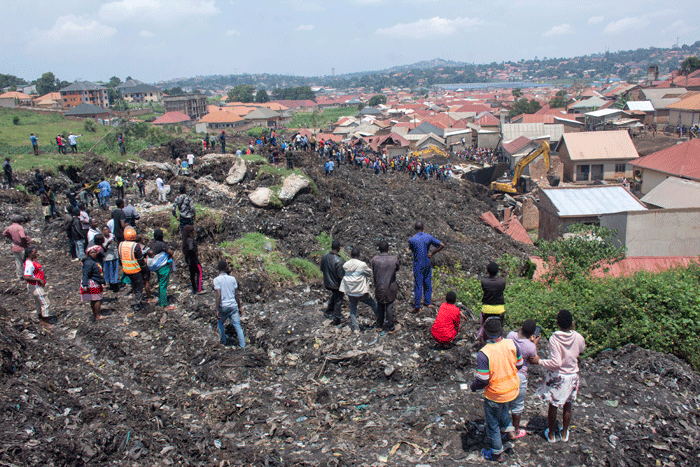Why defilement cases are high in Adjumani

Some of the teenage mothers at Alere Health Centre II in Adjumani District. PHOTO | MARKO TAIBOT
What you need to know:
- Of the 12,231 deliveries recorded in the district last year, 1,474 were of girls aged between 10 and 19 years.
The rising cases of defilement in the Adjumani District have been attributed to poor parenting, especially during holidays.
A report from the district health department indicates that of the 12,231 deliveries recorded in Adjumani last year, 1,474 were of girls aged between 10 and 19 years.
The report adds that of the 96,180 women who attended family planning services, 30,475 were between the ages of 15 and 24.
Speaking to the Monitor on Tuesday, the Assistant District Health Officer, Mr Henry Lulu, said the report also indicates that 10 adolescents acquired HIV/Aids, and 114 girls between the ages of 10 -19 attended post-abortion care services.
“It is a big concern for us because even with those figures, we had 78 teenagers between the ages of 10 and 19 who got other sexually transmitted infections,” he said.
Mr Lulu said there is a need for parents to control the movements of their children such as barring them from loitering in urban centres and stopping from attending night discos.
He noted that parental guidance is lacking in most families due to tight work schedules.
Already, between January and February this year, 22 cases of defilement were reported at Adjumani Central Police Station.
Parents’ role
The District Police Commander, Mr Simon Bwire, said the high number of defilement cases is an indication that parents are not doing their role of guiding children while at home.
“Of the 22 cases, 14 were in court, one case was closed by the Resident State Attorney, and three cases were convicted,” the DPC said. The Senior Principal Education Officer, Mr Philip Akuku Kayakaya, said in the last three years, they have recorded many school dropouts due to pregnancy, with last year alone having 177 cases.
“We have together with partners managed to enroll back 217 child mothers in both secondary and primary through the accelerated learning program. This is to give them hope and continuity with education,” Mr Akuku said.
The district vice chairperson, Mr Richard Kaijuka, castigated the parents for abdicating their responsibilities to schools.
“At the time when children were with their parents, the rate of defilement was high, while when they were in school the rate was low. Everyone should stand responsible for the welfare of children. Some cases are not reported because some parents use girls as a source of wealth,” he said.
Mr Kaijuka also observed that the cultural practice of looking at girls as a source of wealth is responsible for the increasing cases of defilement and teenage pregnancy in the district.
Between October and December last year, there were 261 deliveries by Caesarean section.
One of the defilement victims from the Alere refugee settlement said she was defiled last year but has been abandoned by her boyfriend.
She claimed that she was impregnated because she was not guided by her parents.
Ms Nancy Asibazuyo, the project officer of Forum for African Women Educationalists (FAWE-Uganda) in Adjumani, said: “We need to empower the girls in and out of school with accurate and youth-friendly age-appropriate information on sexual and reproductive health so that they make informed choices in their lives, especially in the area of sexuality.”
She added: “We have selected schools where we carry out routine career guidance and discussions about potential barriers to girl child education. We encourage girls and boys to stay in school and desist from risky choices and behaviours that could predispose them to violence.”
Recently, the Royal Danish Embassy in Uganda in partnership with the United Nations Population Fund (UNFPA) launched the Strengthening Adolescents and Youth (SAY) Empowerment and Rights Programme in the Adjumani District.
The Uganda police report of 2023 indicates that there were 355 cases of defilement recorded in the West Nile Sub-region.
According to the United Nations Fund for Population (UNFPA) report of 2021, one in four (25 percent) of girls in Uganda aged 15-19 years have had a child or are pregnant.
The report further revealed that 34 percent of Ugandan girls are married by 18 years.




